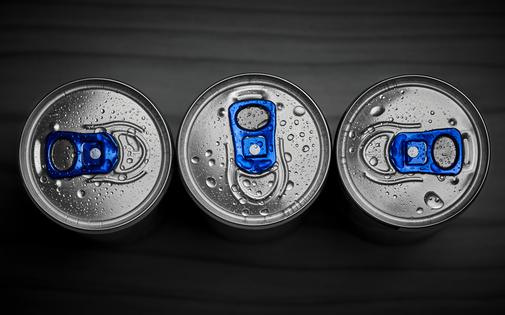Caffeine nation
Published in Health & Fitness
Whether due to early morning schedules or busy days, it seems as though many of us need caffeine to get through our days. No wonder you can’t walk a city block without seeing another coffee shop.
In recent times, caffeine consumption has exploded, with high amounts added to energy drinks, pre-workout supplements, weight loss pills, bottled brews and even energy bars and sports gels. (The energy drink industry itself pulls in more than 11 billion dollars annually.) According to a report in the American Journal of Preventive Medicine, energy drink consumption in the United States has increased substantially over the past decade among adolescents, young adults, and middle-aged adults.
Although caffeine is generally regarded as safe, health experts have been sounding the alarm for potential dangers associated with taking in high doses of caffeine, which can lead to more than a case of the jitters.
Proceed with caution
A 2020 study in Mayo Clinic Proceedings using data from the FDA’s Center for Food Safety and Applied Nutrition Adverse Event Reporting System determined that caffeine-containing products including supplements and energy drinks have a greater association with severe adverse events, including death, compared with non–caffeine-containing products. The study authors say it’s important to determine the doses of caffeine involved in the negative outcomes.
“Excessive caffeine consumption may acutely cause caffeine intoxication, resulting in conditions including nervousness, headaches, nausea, cardiac arrhythmias, seizures and even possible death,” says John P. Higgins, MD, MBA, a Sports Cardiologist at McGovern Medical School at UTHealth in Houston.
Results from an investigation in the Journal of the American Heart Association found energy drink consumption can raise a person’s blood pressure and cause heart abnormalities. The findings were based on data from an analysis of 34 healthy volunteers between the ages of 18 and 40 years old who were randomly assigned to drink either a placebo or 32 ounces of a caffeinated energy drink that contained 304 to 320 milligrams of caffeine. Similar results in the journal JAMA found that blood pressure levels went up by an additional six percent and the stress hormone norepinephrine rose twice as much after people drank a 16-ounce energy drink compared to when they drank a placebo beverage. There is a chance, albeit slim, this can trigger sudden cardiac death.
Frequent energy drink use has also been linked to mental health disorders, including depression and anxiety. And since caffeine has a long half-life, it can remain in your system for several hours and contribute to bouts of insomnia.
“Alarmingly, energy beverage consumption has also been associated with high-risk behavior, including fighting, drug use, alcohol abuse, and sexual risktaking,” adds Higgins. What’s more, a Perspectives in Public Health study found that energy drink users were more likely to make poor dietary choices, such as taking in a lower amount of fruits and vegetables, skipping breakfast, and consuming more sodas and frozen meals.
Beyond caffeine
Many caffeinated products aren’t just caffeine. Higgins cautions that the high amounts of added sugar in many drinks may over time increase the risk for obesity, insulin resistance and, ultimately, Type 2 diabetes. (Many brands have introduced “diet” versions of their drinks that include the same artificial sweeteners used in soft drinks.) Many high-octane elixirs cram in a laundry list of novel add-ins like guarana, taurine, B vitamins, and ginkgo biloba. “It is likely that there are effects due to the interaction of these substances that research has yet to show,” Higgins says. “Guarana contains high levels of caffeine, thus adding even more caffeine to what is already present.”
How much is too much?
Higgins says most adults and adolescents should limit their intake to 400 and 100 mg of caffeine a day, respectively. It can be easy to go beyond this mark and, in turn, raise the chances for adverse outcomes like high blood pressure if you include one or more caffeinated products in your daily routine. (Remember that you also get some caffeine from items like tea and chocolate.) Although the U.S. Food and Drug Administration (FDA) regulations require that energy drink labels indicate if the product contains caffeine, the FDA does not impose a caffeine limit or require reporting of the actual level of caffeine. Some energy drink companies are taking part in voluntary labeling initiatives. If you’re not a regular coffee or energy drink user, you’re what researchers call “caffeine naïve” and you could be even more susceptible to the side-effects of consuming highly caffeinated products.
The bottom line
We all need an energy boost on occasion, yet relying too heavily on caffeine-rich products is not the best course of action. There is nothing wrong with a daily coffee habit or occasionally popping the top of an energy drink, but look for other ways to rev your engines, such as eating a whole-food diet, exercising regularly, and getting plenty of shut-eye.
(Reprinted with permission from Environmental Nutrition, a monthly publication of Belvoir Media Group, LLC. 800-829-5384. www.EnvironmentalNutrition.com.)
©2021 Belvoir Media Group. Distributed by Tribune Content Agency, LLC.







Comments